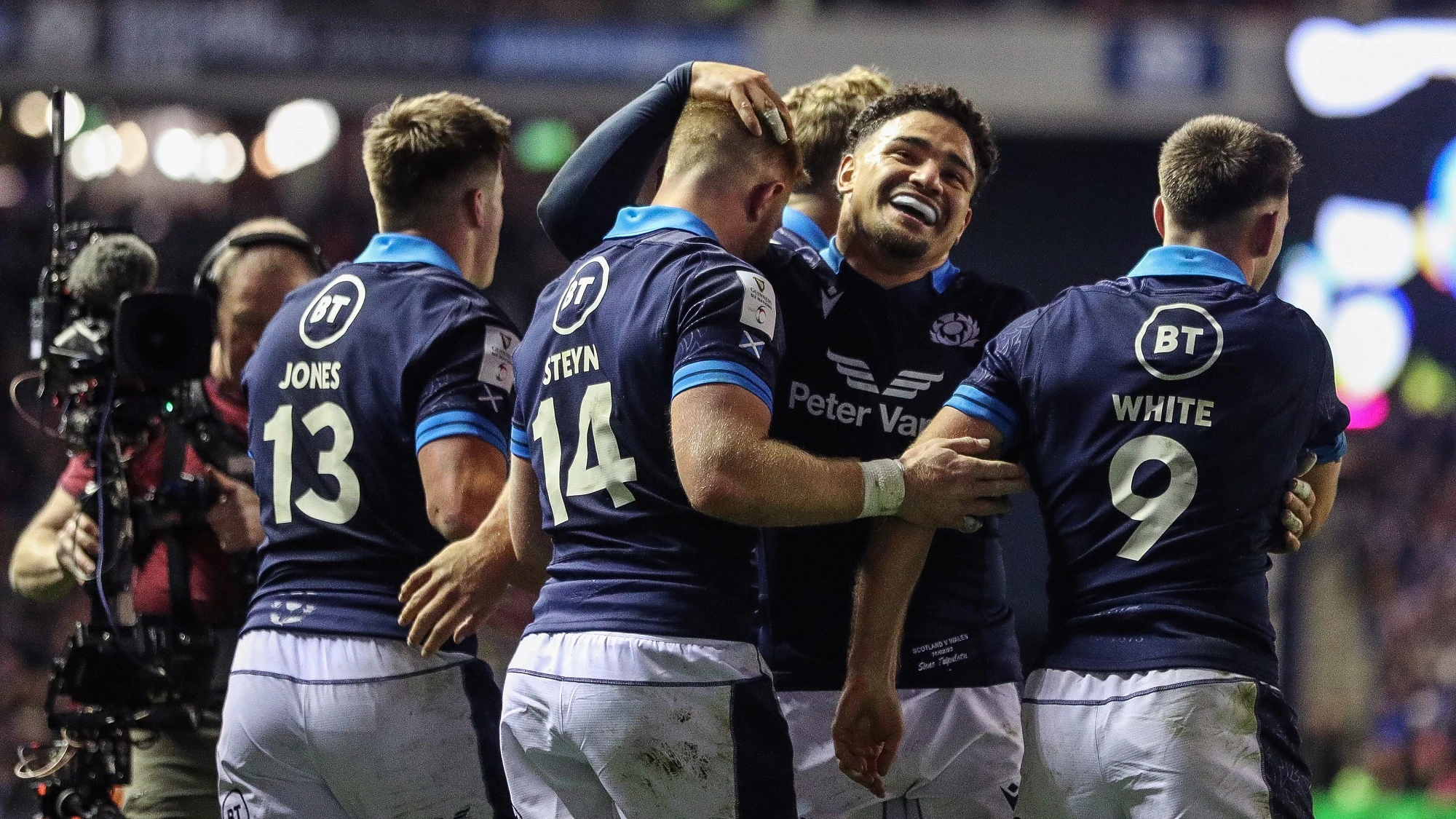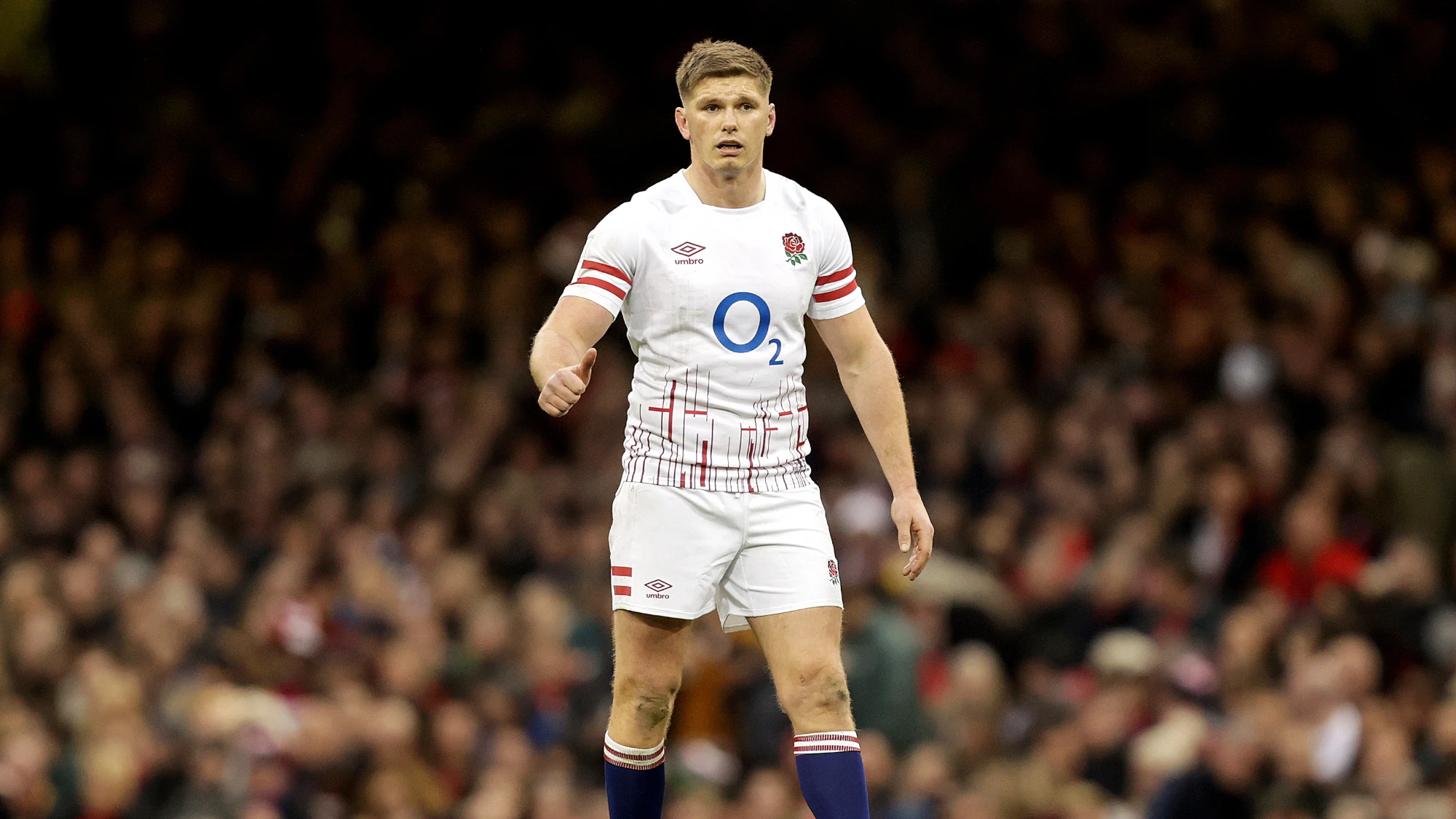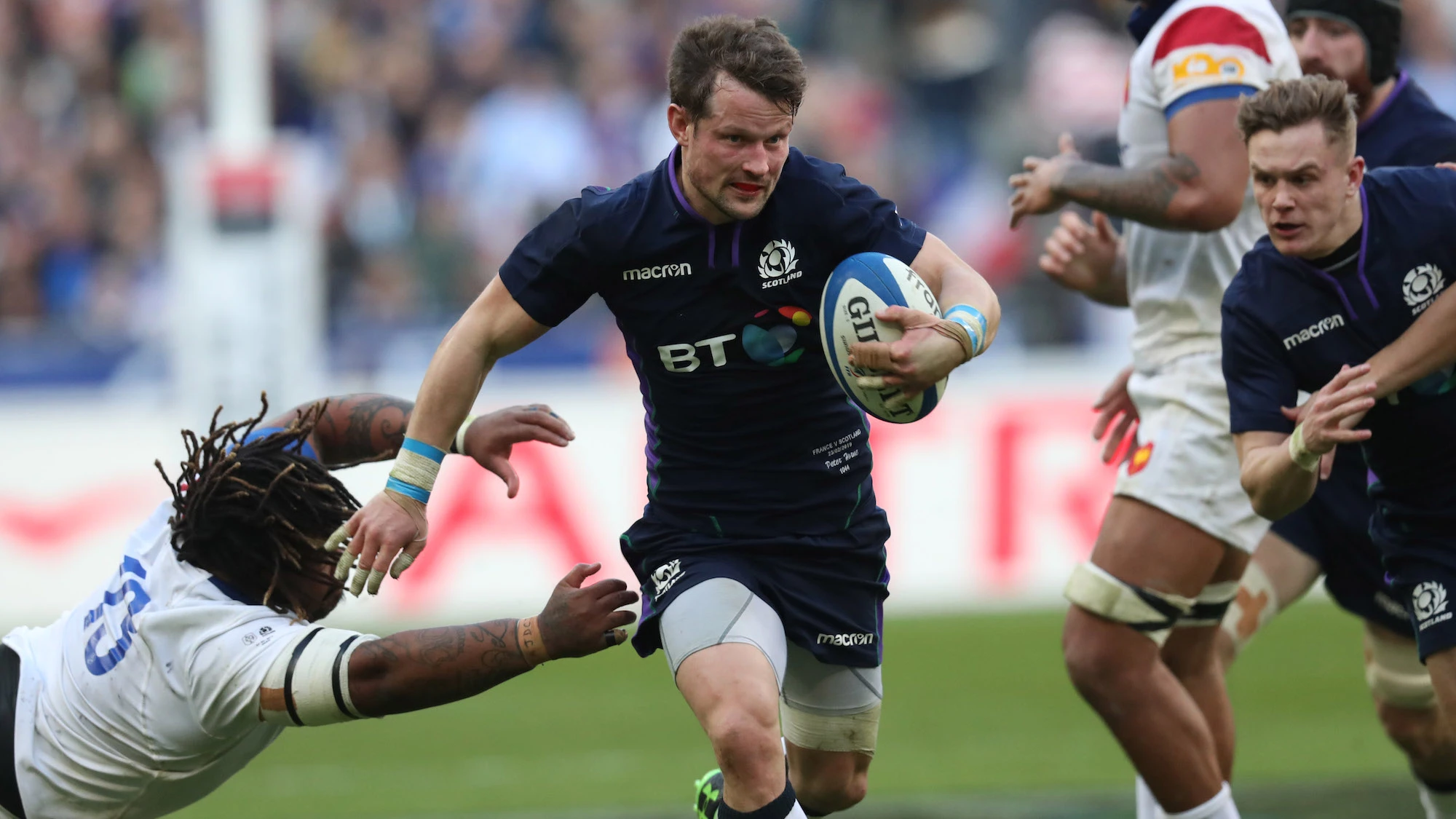After two weeks of Guinness Six Nations action, Ireland and Scotland are still in the running for a Grand Slam, while Wales and Italy are searching for a first victory.
Dig a little deeper though, and more trends emerge. How are Andy Farrell and Gregor Townsend setting up their respective sides and why is it proving so successful?
What is holding Wales and Italy back?
And where can England and France progress to close the gap on the top two?
Similarities and differences in leading sides’ approach
While the way Scotland and Ireland set up is very different, there are two main stats which suggest similarities in what they are trying to achieve.
They are the two teams who have kicked the furthest in this year’s Championship (Ireland 2128.4, Scotland 2119.4), with England the only other team to have topped 2000 metres.
There is in fact a clear delineation between the top four in the table (France are on 1917.1) and the bottom two (Wales 1244.6, Italy 1190.4). That is not to say that the only way to win rugby games is to kick, but it has been a bigger feature for the successful sides through two games.
Of course, part of that is down to the situation of the game. Wales were never likely to kick very much against Ireland, having found themselves 21 points down very quickly, but they put boot to ball a similar amount at BT Murrayfield, despite being very much in the game until midway through the second half.
Ireland and Scotland are also the teams who have offloaded the least through two matches. Finn Russell might have produced some magic for Kyle Steyn’s try on Saturday, but it is a tactic that has been used sparingly.
Compare Scotland’s eight offloads with France’s 23, and you see that the Scots might be exciting with ball in hand, but it does not necessarily require gambles when they have possession.
Where the two teams differ is what they do when they do have the ball. No one has carried more than Ireland (311), with Scotland bringing up the rear with 222 carries.
Ireland have also made the most metres (1778.3), with only Wales (1375.7) carrying less than Scotland (1380.3).
That should not come as a surprise. No team is better at holding onto the ball than Ireland, while Scotland love to strike immediately with six of their nine tries coming in two phases or fewer and none requiring more than five.
Contrast that with Ireland, who went through at least five phases for every try they scored in Wales with the exception of the James Lowe intercept and you see two very different approaches, with similar results.
What is hurting Wales?
Warren Gatland’s return to Wales has not gone as planned, with two heavy defeats to Ireland and Scotland, and just two tries scored over 160 minutes.
That is half as many as Italy, who sit fifth in the table in tries scored, and digging a little deeper, the numbers are even more concerning.
A look at the number of broken tackles shows a drastic drop-off from the other five nations and Wales. While France lead the way quite comfortably with 75, each of Scotland, Italy and Ireland (59, 59 and 56) are not too far behind, while England have broken 43.
Wales, by contrast, have broken just 28 tackles in two matches, just eight more than Scotland winger Duhan van der Merwe on his own. That is not the sole reason for their lack of tries in their first two matches, but an inability to win individual battles in attack is certainly holding them back.
They are also the least efficient team when carrying the ball, making 5.11 metres per carry, more than a metre worse than top two France (6.36) and Scotland (6.2).
Defensively, they have shipped nine tries in two games, a figure that new defence coach Mike Forshaw will not be happy with, and their tackle success rate of 82% is better only than England and Italy.
While they lead the Guinness Six Nations in dominant tackles (30), that has come at the expense of discipline, with their nine offside penalties more than double the next worst offenders France (4).
On the positive side of things. Despite only France offloading more, Wales have committed the fewest handling errors (18).
Margin for improvement for Italy
After running France so close in Round 1, Italy would have hoped for a better showing at Twickenham, where they were beaten 31-14, after a poor first half.
They have started both matches slowly, with six of the eight tries they have conceded coming in the first half. That is a trend they cannot afford to continue.
While their discipline on the whole has been okay, the five scrum penalties conceded are the most of any team, and will be a worry with Ireland next up in Rome. Similarly, the fact they have managed just four turnovers won, with Wales and England next fewest (8), has meant that the likes of Ange Capuozzo have not had as many opportunities on counter-attacking ball as they might have done.
Still, the full-back has managed to make the difference when he has touched the ball, breaking 17 tackles, second only to Van der Merwe. He is also third for metres made (241) and joint top for most offloads (4, with Mack Hansen, Owen Farrell, Gaël Fickou and Antoine Dupont). A word too for Sebastian Negri, whose 149 metres made with ball in hand are second only to Caelan Doris (163) among forwards.
All of the above will likely change over the next three rounds of action. Wales will be desperate to sharpen their attack, Italy will be focusing on their set-piece and every opponent will be trying to ensure Scotland cannot maintain the efficiency they have shown thus far. If they can, then dreams of a first Scotland title since 1999 could become reality. To do so, they just need to knock off the world’s top two sides in their next two games before welcoming Italy to BT Murrayfield on Super Saturday.



